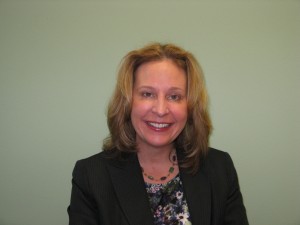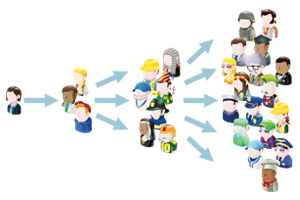 There is a cognitive phenomenon called the optimism bias that leads humans to think that the likelihood of a negative event is lower than it really is. This is great when we are battling the day-to-day stresses of our lives but not so good when trying to plan for unexpected risks. In this blog post I will explore how the optimism bias can affect risk management.
There is a cognitive phenomenon called the optimism bias that leads humans to think that the likelihood of a negative event is lower than it really is. This is great when we are battling the day-to-day stresses of our lives but not so good when trying to plan for unexpected risks. In this blog post I will explore how the optimism bias can affect risk management.
Tigger or Eeyore
In a recent article for the Nonprofit Risk Management Center, Erin Gloeckner describes different personality types as Tiggers, or people who are always positive and bouncy, and Eeyores, those who are always down and negative. In reality, most of us fall somewhere in between but tend to have an optimism bias. As I have mentioned in previous posts, I tend to be an uber-Tigger and that can get me into trouble when determining the likelihood of failure or disaster. I was once asked to develop potential disaster scenarios for a project so that I could mitigate any risks associated with those scenarios. Try as I might, I could not come up with any realistic scenarios that involved failures. I realized my own bias towards optimism and asked for help from a project member I knew had a negative bias. That person was able to develop many different disaster scenarios and we created risk mitigation plans to counter each of them. True to my world, none of those scenarios ever happened but we were prepared nonetheless.
Business Planning
When managing information, it’s important to have a realistic sense of security. Start with preparing honest answers to these questions:
- What are the chances of a security breach that leads to leaked confidential information?
- What are the chances of a natural disaster that affects the operations of my organization?
- What are the chances that I will lose a key person in my organization, at least temporarily?
It is important to have plans in place to counter the various threats that can happen in the course of doing business. Storms don’t stay away forever and key people don’t stay in one position their whole life. We can lessen the impact of these events by planning for them.
Personal Planning
I have talked about this in past blog posts but I think it is also important to evaluate potential risks in our personal lives. Ask yourself:
- What are the chances that I could lose my current job?
- What are the chances that I could suffer health problems?
- What are the chances that a natural disaster could affect me or my family?
While it is not good to dwell on these scenarios to the point of distraction, it will give you peace of mind to know that you have planned to mitigate risks. These mitigation strategies should include making sure your skills and education are up to date and that you are exercising in order to fend off avoidable health problems. Set aside money to counter any unforeseen financial problems. Just as you plan for business disruptions, you can also plan for personal issues. These plans can help you sleep at night and be a Tigger all day.
Thoughts
If you are interested in learning more about the optimism bias, there is an excellent 2012 TED talk by Talit Sharot that covers the topic. Whether you tend to be an Eeyore or a Tigger, it is important to recognize your biases as you make plans for your business and your life. Do you already know your personal biases? Let me know your thoughts.
Kelly Brown is an IT professional and assistant professor of practice for the UO Applied Information Management Master’s Degree Program. He writes about IT and business topics that keep him up at night.





